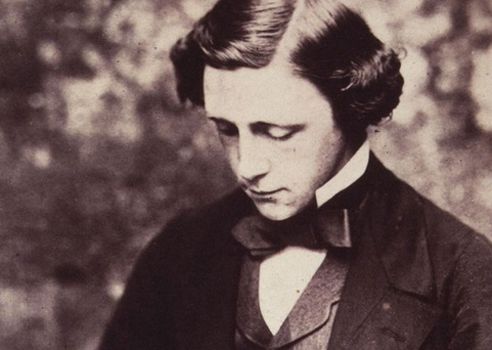Reading time: Less than 1 minute
Increase your vocabulary and you’ll make your writing much more precise. That’s why I provide a word of the week. Today’s word: gamboling…
If you had asked me what the word “gamboling” meant, I would have told you, correctly, that it refers to running or jumping about playfully. I might even have quoted — incorrectly — from the poem Jabberwocky, by Lewis Carroll, pictured above:
‘Twas brillig, and the slithy toves
Did gyre and gambol in the wabe:
All mimsy were the borogroves,
And the mome rathes outgrabe.
So much for my classical education.
I encountered the word gamboling recently in the novel Golden Hill by Francis Spufford. Here is how the author used it;
Smith, indeed, when once he had his shoes flat on the cobles, took off at such a speed despite the gamboling of his land-legs that he far out-paced the sailor dispatched to carry his trunk… gamboling gamboling gamboling gamboling
Despite knowing the meaning of the term, I knew nothing about its etymology. It comes from the Middle French gambader, and may also be related to the Middle English word, gambon or a “a ham” — referring, I presume to those legs required for running or jumping.

